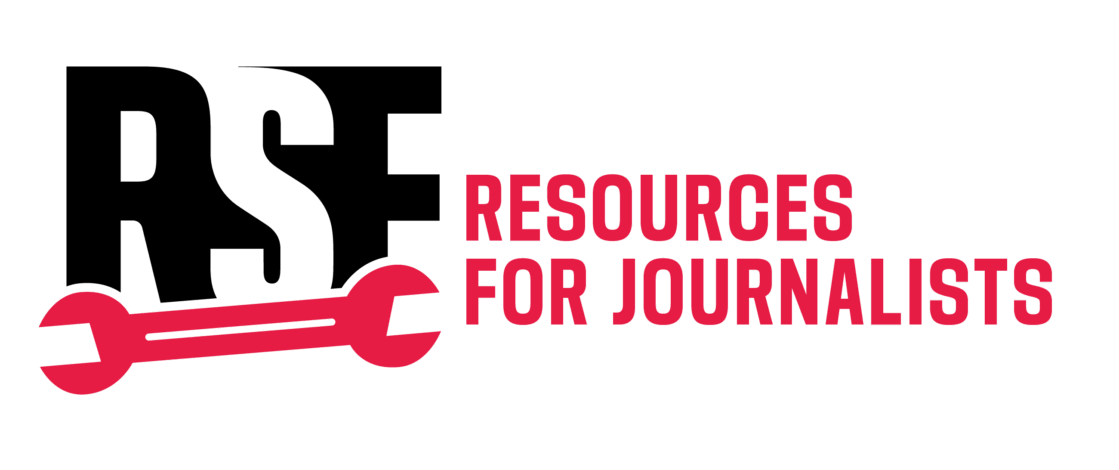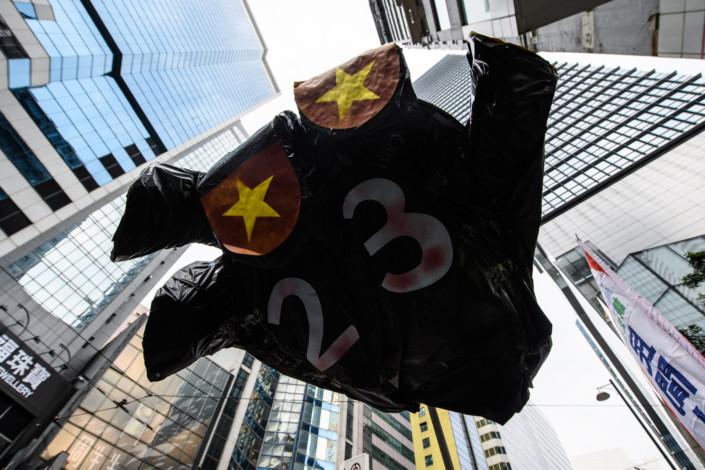In March 2024, the Hong Kong government passed the Safeguarding National Security Ordinance, also referred to as “Article 23.” This disposition of the Basic Law introduces five new types of offences that are likely to be weaponised against journalists. In this second article of a four-part series, Reporters Without Borders (RSF) along with expert Josephine K. examine the provisions of Article 23 and the threats they pose to press freedom.
The Safeguarding National Security Ordinance (SNSO), commonly called “Article 23” for its reference to Article 23 of the Hong Kong Basic Law, was passed in March 2024. It introduces new offences that restrict press freedom, more severe penalties, and reduces the rights of individuals detained under the law, completing the already existing laws relating to national security. This new legislation also uses very broad definitions, meaning law enforcement can freely interpret its provisions to criminalise previously legal forms of media reporting. The newly defined offences are: treason and misprision of treason; insurrection; espionage and theft of state secrets; sabotage endangering national security; and external interference endangering national security.
Contravening press freedom
- Previously reportable topics are now classified as “state secrets.” Part 4 considers major policy decisions, economic, social or technological developments, and information concerning the relationship between mainland China and Hong Kong authorities “state secrets” until the government makes an official release of them. Journalists and media outlets will need to use extreme caution as possessing or publishing “state secrets” is now a punishable offence.
- “External interference” can easily be applied to media outlets. Part 6 defines “external interference” as any attempt by external forces to influence policy by “improper means,” either in Hong Kong or mainland China. What counts as “improper means” is not explained. “External forces” is defined as any group outside China, or any individual associated with a group outside China, that “pursues political ends.” This definition is so broad it can encompass any international media organisation.
- Vague definitions and overreaching legal powers. Journalists with experience in mainland China will be familiar with the broad and arbitrary application of similar laws and their effect on media workers. Recent Hong Kong court decisions have demonstrated their willingness to dismiss the right to press freedom by labelling media outlets as “advocacy” organisations. A straightforward legitimate news report could be labelled a crime under Article 23, and the potential severe punishments will make finding sources willing to go on the record in the region more difficult.
Facilitating abusive prosecution
- Prosecution of journalists based outside of Hong Kong. Throughout the Ordinance, it states that an offence made anywhere in the world falls under its jurisdiction if consequence occurs in Hong Kong. However, unlike the National Security Law (NSL), this reach is limited to Hong Kong residents and companies operating or registered in Hong Kong. This means local journalists, and foreign journalists with permanent residency, can be prosecuted even if they were working in another country.
- Arrest of foreign journalists upon entering the city. Journalists who are not based in Hong Kong, nor have even been to the city, but have published works that fall under the jurisdiction Article 23, can have warrants issued for their arrest and be apprehended at the border.
- Expanded powers of custody. Part 7.1.3 allows the detention of journalists for up to 16 days without access to a judge or legal counsel. Police can enforce a “movement restriction order” where the accused is granted bail but must stay within a limited area and report regularly to the police.
Facilitating abusive detention and sentencing
- Restrictions on legal representation. Part 7.1.2 grants the courts the ability to restrict access to a journalist’s lawyer of choice if police officials request it before the accused is charged.
- Restrictions on the right to public trial. Part 7.1.4 and Part 8 explicitly permits closed-door court proceedings “in the interest of national security,” meaning no media, diplomatic staff, family, or members of the public can be present during the trial if the court decides.
- Expansion of the range of penalties. Journalists convicted of national security offences can have their pensions or contract gratuities cancelled or reduced (Part 9.5 and 9.7). Passports can be cancelled without any opportunity to appeal. And the usual right to remission of sentence (i.e. having a sentence reduced for good-behaviour), can be denied at the court’s discretion (Part 9.14).
- “Public interest” defence unlikely to succeed. Part 4.1 defines a possible exception to its laws if the offence is committed in the interest of the welfare of the general public, e.g. to prevent a public health disaster. This is a defence journalists may be inclined to take, however, the circumstances for which the disclosure of “state secrets” may be found acceptable are extremely narrow, while the law against even possessing state secrets means escaping conviction is unlikely.
Josephine K. is a pseudonym as the author wishes to remain anonymous for safety reasons.
← Read Part 1: The National Security Law
→ Read Part 3: Sedition laws
→ Read Part 4: Limited access to information



